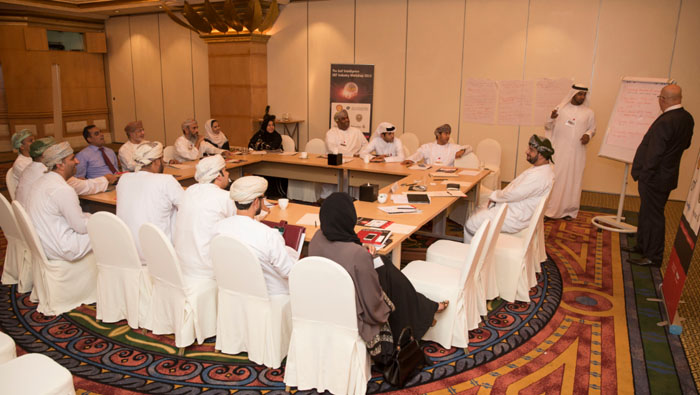
Muscat: Occidental of Oman (Oxy Oman) and Petroleum Development Oman (PDO), in alignment with Sultan Qaboos University (SQU) and The Research Council, are spearheading the country’s efforts to create a research and development (R&D) ecosystem by aligning the goals of local industry and academia at the 2016 Oman Energy Industry-Academia R&D Summit in Muscat on October 18.
The summit is based on exploring timely and tangible solutions to the top R&D recommendation from the Oman Energy Master Plan 2040 (Draft) Report, which was published in late-2015. The top recommendation was: ‘Align academia and industry in the delivery of an enhanced R&D ecosystem in Oman. The alignment between Oman’s industry and academia must be urgently improved in order for the country to deliver an enhanced R&D ecosystem that fosters efficient public-private partnerships.’
Sultan Qaboos University has taken ownership of moving the conversation surrounding the top R&D recommendation to the next level and is hosting the summit. Three quarters of participants who attended the 2015 Oman Energy Forum workshop, which was the basis of the Oman Energy Master Plan 2040 (draft) report wanted to narrow the widening gap between industry and academia to establish PPPs for R&D, according to a Gulf Intelligence (GI) industry survey.
“Creating a knowledge and R&D ecosystem is a multifaceted and long journey that lies at the core of Oman’s national goals. SQU ensures that it meets with stakeholders from the industry, ministries and various organisations to understand their needs and challenges and collectively develop novel solutions to tackle their challenges in what is a dynamic job market,” said Dr Rahma Al Mahrooqi, deputy vice chancellor for Postgraduate Studies and Research, Sultan Qaboos University.
“SQU would like to see the entire chain of innovation evolve, from research, commercialised innovations to the creation of new businesses and industries. SQU hopes to see academia and industry join hands to bolster the efficiency and cost-effectiveness of Oman’s energy sector,” he added.
The need for cooperation has never been clearer, as Oman’s economy faces intensifying pressure. Oil and gas revenues accounted for nearly 80 per cent of Oman’s government revenues in 2015 and the World Bank estimates that low oil prices reduced Oman’s revenues by $10 billion last year. Further losses are inevitable, as Brent oil hovers at $50 a barrel.
“There is little debate that better cooperation between industry and academia is the switch that will help release the growing pressure on Oman’s energy sector and encourage more public-private partnerships. While Oman’s oil production reached 1 million barrels a day for the first time in July last year, the challenges of low oil prices and maximising economic recovery from the country’s maturing fields remain,” said Steve Kelly, president and general manager of Occidental of Oman, which is one of the summit’s two premier partners.
“The innovative spirit that Oman urgently requires to enhance its R&D ecosystem is already evident, with deployment of a string of enhanced oil recovery (EOR) technologies illustrating the country’s appetite for pushing the boundaries,” said Steve added.
“Oman is undoubtedly on the right track to building knowledge capacity and creating an innovative R&D ecosystem, which will enable the energy sector to flourish in a cost and operationally efficient manner. PDO is at the forefront of implementing pioneering technology and, along with many public and private sector entities, has worked hard with stakeholders in both Industry and academia to help narrow the agenda gap and to develop successful partnerships,” said Raoul Restucci, managing director of Petroleum Development Oman, which is the summit’s second premier partner.
“Both groups appreciate the importance of cooperation and that further integration is paramount. Now, we must all work hard to action those conversations on a national scale,” he added.